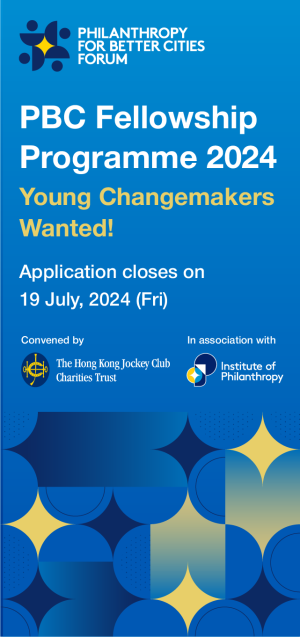Social innovation is a key tool for fighting inequality, tackling climate change and making meaningful progress towards the world’s SDG goals as we get closer to 2030. This virtual session by Catalyst2030 focused on how governments can collaborate with social innovators to bring about much-needed change and create policies to help the sector flourish.
Social innovators are individuals with a strong desire to tackle societal problems using principles of entrepreneurship and creativity. The social innovation sector has the unique strength of leveraging community action to deliver lasting impact and systemic change by creating new opportunities for individuals to become change-makers within their communities and finding innovative solutions to complex problems through collaboration.
There is huge potential for social innovation to be an effective strategy to help countries meet their SDG goals, however for this to happen social innovators require support from governments and an innovation-friendly market ecosystem to foster growth.
Catalyst2030’s virtual panel session featured government representatives from Germany, Brazil, Lithuania, Mexico and Indonesia to discuss how they are working towards accelerating the global growth of social innovation as part of the new Government Champions for Social Innovation and Impact (GCSII) working group.
Zarah Bruhn: Germany
Zarah Bruhn (Commissioner for Social Innovation, The German Federal Ministry of Education and Research) is the chair of the GCSII working group and discussed how she is working towards bringing social innovation to the forefront of the national agenda in Germany, as well as the international agenda at the upcoming G20 summit in July.
The GCSII working group is a project that enables governments to learn from other countries about the most effective measures to grow the social innovation sector and boost its visibility, while also exchanging policy frameworks. Germany is now looking at creating impact funds, which already exist in Portugal and Spain.
To consolidate their efforts, the German government released a ‘checklist of achievements’. This was created as a structure for other countries to use and publish their achievements, sharing ideas about which initiatives are working well and emphasising the active involvement of government in setting the agenda for social innovation.
The German government recently released its first-ever national strategy for social innovation, which can be accessed on the checklist page and covers 70+ measures to boost social innovation. This includes creating impact measurement standards, increasing the visibility of the sector, better funding options, more research and development, education in universities around impact start-ups, and making more use of EU funding.
Boosting social innovation is becoming a wider movement in Germany, with many regions inspired to create their own regional social innovation strategies. The government is also keen to improve the regulatory environment by offering tax incentives to social enterprises and creating a new legal form of company with tied assets.
Lucas Ramalho Maciel: Brazil
Lucas Ramalho Maciel (Director of the New Economy, Secretary of Green Economy, Decarbonization and Bioindustry, MDIC) discussed the importance of strengthening a global coalition to promote a more sustainable, equitable economic system through social innovation.
With the G20 covering two-thirds of the global population and 85% of the global GDP, he believed that real change must be coordinated within this group. He was also keen to highlight the advantages of international collaboration between governments, through platforms such as the GCSII working group. He stated that government policies can explore solutions to complex problems that are more efficient and sustainable because they’re built with social participation.
Going through Brazil’s checklist of achievements, he broke down Brazil’s national strategy for the impact economy into five key points:
- Attracting bigger impact investments, to multiply impact investment by 10 and attract more foreign investors.
- Encourage the growth of impact businesses.
- Offer more support to impact businesses through schemes aimed at connecting investors, creating more accelerators, and promoting sustainable growth. They will work with all 4000 incubators/accelerators in Brazil to create social impact criteria.
- Better regulation for the impact economy through creating a regulatory framework around legal, social and environmental aspects.
- Collaboration with states and municipalities to build a national system to foster an impact economy, to reach all 27 states in Brazil.
Asta Jurgute: Lithuania
Asta Jurgute (Head of the European Competence Centre for Social Innovation) discussed Lithuania’s checklist of achievements on the social innovation agenda, which is still being developed.
She explained that the main obstacles they face in promoting social innovation include the lack of political attention and an insufficient regulatory environment to foster. There is currently no official social innovation development strategy and it is fragmentally discussed in different legislations.
There is also a lack of collaboration among organisations involved in the sector, on top of a difficult funding situation and an unclear definition of ‘social innovation’. As a result, social innovators are often not recognised as such.
The positive news is that Lithuania is currently preparing a social economy plan to be used as a basis for identifying future areas of investment and social innovation.
Juan Manuel Martinez Louvier: Mexico
Juan Manuel Martinez Louvier (Director, National Institute for Social Economy, INAES Mexico) started by explaining how the Mexican government’s approach to social economy has undergone a radical transformation. Previously it provided limited resources to direct groups, but it has now shifted to providing more universal support enabling institutes like INAES to play a more profound role in the sector.
In Mexico, the social economy is defined by the constitution and excludes non-profits and foundations. However, it does include farmers owning communal land in communities, which encompasses 52% of the national territory.
One of the institute’s achievements in its new social economy plan is the creation of the NODESS national network – with each network involving the collaboration of a university, local government and a social sector organisation.
Each NODESS promotes support for social enterprises within their region, creating value chains, and providing technology, processes and innovations to businesses. So far the NODESS network has created 500+ partnerships across Mexico and is researching the social enterprise sector in the country.
Mexico was also partly responsible for the creation of the Iberoamerican Social and Solidary Economy Network. The founding countries of the network are Brazil, Chile, Guatemala, Columbia, Spain and Mexico. The purpose of this governmental network is to explore potential opportunities to grow a strong social innovation sector in Latin America.
Vivi Yulawati: Indonesia
Vivi Yulawati (Deputy Minister for Maritime and Natural Resources Indonesia’s Ministry of National Development Planning/Bappenas) gave her top reasons why governments need to try to engage social innovators.
As countries recover from the pandemic and try to get back on track to reach their SDG goals and net-zero emissions by 2050, social innovators can play a big part in discovering innovative solutions to some of these big societal problems. It’s especially important to engage younger generations who are using digital tools and technology to do this, and the Indonesian government is trying to create a national ecosystem to support this, though it’s still in its preliminary stages.
For this to happen, governments must create the right environments for social innovation to flourish. She gave an example of a social enterprise in Indonesia that is producing an eco-brick made of 50% plastic waste and 50% rice husks, who failed to register as a company because the system could not provide the right classification for their business.
Vivi Yulawati is working with other government departments in Indonesia to create new business policies and legislation for social enterprises to be classified and recognised and to further develop the social enterprise ecosystem in the future.
Financing Social Innovation Industries
Following an audience question, the panellists discussed how social innovation ministries and support infrastructure could be financed. They suggested:
- International funding organisations, such as the Latin American Development Bank and the World Bank.
- National banks creating impact funds to fund impact-driven initiatives.
- Blended finance – using a mix of private and public funds.
- Using dormant bank accounts to create impact funds, is a new funding source in Germany, though it’s already popular in other European countries.
Looking ahead
Moving forward, the GCSII working group is looking at growing the website, exploring new ways to fund and support the social innovation sector, and running more events and workshops for governments on this topic. This also involved putting social innovation on the G20 summit agenda.
They are very keen for more countries to embrace the potential of social innovation and invite government representatives to join the working group.
Annmarie McQueen is the Subscriptions Manager at Alliance Magazine.





Comments (0)